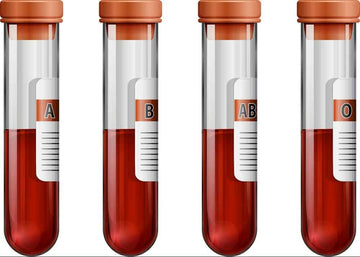Blood tests give insight.
It is human nature to want to know things about one’s own body. But for many individuals, much of their health information is only accessed through middlemen: doctors, healthcare providers, and various other medical services.
In general, the average person tends to get medical tests done at the discretion of their healthcare provider. Tests are requested only when the provider asks for it, and their results are summarized to information the provider feels is pertinent.
However, advances in the medical industry have granted individuals unprecedented access to the inner workings of their own bodies. More specifically, services now exist that allow one to personally order blood tests.
To many, regular blood tests may seem unnecessary or complicated. However, anyone who investigates their health through blood tests will have a much more complete picture of their health.
Why blood tests?
Many people dislike getting blood tests. For some, a fear of needles makes every visit to the clinic a nightmare. For others, there may be difficulties in getting them quickly scheduled with their local clinics. Still, others may just find the whole process somewhat invasive.
Regardless of the rationale, there is a general reluctance among a significant portion of the population to get blood tests done. Unfortunately for those who dislike them, there are few tests as adept as a simple blood test.
One’s blood is an ideal monitor of one’s health because it is plentiful, easy to access, and involved in all biological processes. Because it interacts with just about everything in the body, medical science is adept at weaponizing in the fight against illness and death.
In short, blood tests are ubiquitous in the medical industry because of their versatility. The is by no means a comprehensive list, but blood tests can:
• Reveal how well organs such as your heart, kidney, liver, or thyroid are performing.
• Diagnose severe diseases such as various forms of cancer, diabetes, or HIV & AIDS.
• Determine the efficacy of medications you have been taking.

Why regular blood tests?
So, let’s say that we are all on the same page regarding the things a blood test can tell you. The natural follow-up to such a conclusion is why do these tests have to be done regularly? Isn’t one test every year or two enough to get the pertinent information?
You can be forgiven for thinking this. For most primary physicians, blood tests will be requested once a year. But this is the absolute minimum that it should occur for various reasons.
Life does not operate on a schedule. Suppose a hypothetical person’s blood test comes in with a clean bill of health in January. They talk with their doctor, arrange their test for the following year, and carry on with their everyday life.
However, in February, unbeknownst to this individual, they contract a disease. The exact condition isn’t relevant, but it is an illness that does not have many immediately apparent symptoms.
If this hypothetical person is getting tests done once a year, this condition can quietly ravage their body for upwards of eleven months. By the time their doctor gets their eyes on another test, it may have progressed to a point where treatment options are more limited, costly, or dangerous.
Conversely, if this hypothetical person is getting blood tests done once every three months, it’ll be much easier to catch this condition in the earlier stages. It will likely be much more treatable, making the overall prognosis much more favorable.
Think of the human body like the stock market. If one checks the price once a year, they will have a general idea of how things are trending — up or down. But if these check-ins are down more frequently, they will have a better idea of how their body is doing day-to-day.
For example — want to know if that new medication is actually working? Comparing before and after blood tests will give one an idea if, for example, their new cholesterol medicine is having a positive effect.
The more often one can reasonably accommodate blood tests, the better the picture they will have of their bodily health. Everyone’s body is different, so knowing what is normal is vital information for detecting abnormalities.
Empowering the individual.
As of late, a trend has emerged wherein people attempt to take their health into their own hands. For example, a study from Harmony Healthcare found that 69% of millennials seek medical advice from sites like WebMD instead of immediately visiting their primary physician.
Regular blood testing is a great way to empower individuals such as these, as it gives them the knowledge they need to make better-informed health decisions. Rather than aimlessly browsing through WebMD looking for any condition that includes “back pain and fatigue” as symptoms, they can use pre-existing knowledge from their test results to help narrow things down.
On that note, doctors are also a vital part of the blood testing ecosystem. Services like ours augment one’s doctor — we are happy to directly supply them with our patient’s trending bloodwork. This allows them to directly review patient results, an invaluable tool in the diagnostic process.
Ultimately, when regular blood testing is done, both patient and doctor are given unparalleled knowledge of the inner workings of the patient’s body
Conclusion
We hope that this article has given readers greater insight into the advantages of regular blood testing. While it is by no means a comprehensive analysis of the practice, we hope that provides guidance to those looking into it.
Modern technology has given the average citizen unparalleled insight into their own biology. Regular blood testing is one of many ways we can reclaim our bodily autonomy and take our health into our own hands.


